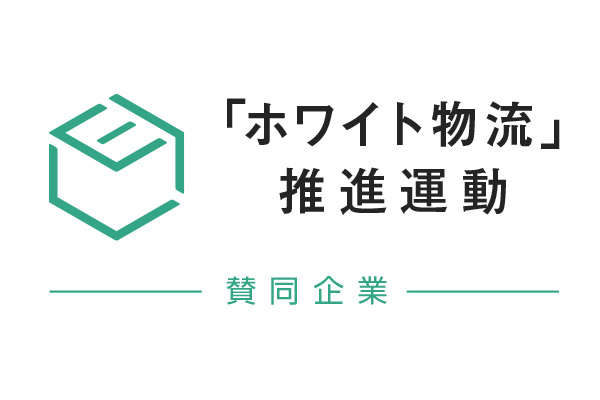DIC Initiatives Aimed at Enhancing the Work Environment in the Logistics Industry through Support for the White Logistics Movement
- Sustainability
Tokyo, Japan—DIC Corporation is a supporter of the White Logistics Movement※1 , which is being put forward by three Japanese government ministries—the Ministry of Land, Infrastructure, Transport and Tourism, the Ministry of Economy, Trade and Industry, and the Ministry of Agriculture, Forestry and Fisheries—to improve the work environment in the logistics industry. In December 2019, DIC submitted its own declaration of voluntary action to the movement’s secretariat. Since then, the Company has advanced a variety of initiatives in the declaration’s seven categories. Below the table, DIC outlines some of the initiatives it is promoting in two of these categories: “Use of pallets and other containers” and “Modal shift (switch to transport by rail and ship).”
| Categories | Details |
|---|---|
| Cooperation with and proposal of measures to improve logistics | In the event a customer or logistics firm requests, for example, a shortening of loading times, manual unloading by drivers or the rationalization of incidental work, DIC will engage sincerely in discussions and proactively offer proposals. |
| Use of pallets and other containers | DIC will reduce cargo handling times by using pallets, roll box pallets, folding containers and reusable cartons, among others. |
| Use of expressways | If a logistics firm seeks to discuss the use of expressways and responsibility for paying tolls, DIC will negotiate earnestly. |
| Modal shift (switch to transport by rail and ship) | For long-distance transport, DIC will switch from trucks to ferries, roll-on/roll-off (RORO) ships and rail. When doing so, revise cargo contents and cost burdens as necessary. |
| Promotion of written contracts of carriage | DIC will encourage the use of written contracts of carriage. |
| Consideration of legal and regulatory compliance when selecting logistics firms to contract | When selecting logistics firms to contract, DIC will give consideration to compliance with relevant laws and regulations.。 |
| Cancellation/suspension of operations in the event of extreme weather | DIC will avoid making unreasonable transport requests when a typhoon, heavy rain, heavy snowfall or other extreme weather occurs or is expected. Should a logistics firm determine it is necessary to cancel or suspend operations to ensure driver safety, DIC will respect that company’s judgment. |
DIC is working with its logistics partners to promote the use of returnable (reusable) pallets※2 at some of its distribution bases. This eliminates the need to transfer cargo from production facilities to one-way (single use) pallets※3when warehousing, thereby reducing the labor requirements of cargo handling. By also using returnable pallets for delivering products to customers, which it then retrieves, DIC is helping to ensure reuse and reducing CO2 emissions attributable to the disposal of one-way pallets.
DIC has long promoted a shift to transport by ship for long-distances in Japan. Shipping using fuel that complies with SOx emissions regulations, which exerts less of an impact on the environment, has recently become standard across the domestic logistics industry. However, because the surcharge on this fuel is higher than that on bunker C fuel oil, previously the standard, its use will increase costs for logistics firms. As a supporter of the White Logistics Movement, DIC, having received requests to consider the issue from logistics firms, resolved to appropriately bear the surcharge incurred by these companies to use SOx emissions regulation–compliant fuel beginning in 2020.
In addition to these efforts, DIC will continue to strengthen communication and collaboration with its logistics partners with the aim of contributing to the promotion of the White Logistics Movement and to the realization of a sustainable society.
- Ends -
※1 The White Logistics Movement is a program introduced to address a critical shortage of qualified truck drivers, thereby ensuring the provision of stable logistic services—crucial to both consumers and industrial activities—while also supporting economic growth. The goals of the movement are to improve the productivity of truck transport and enhance the efficiency of logistics overall, as well as to create work environments that welcome women and drivers over 60.
※2 Returnable pallets are reusable. Repeated use lowers environmental impact by reducing waste disposal.
※3 One-way pallets are for single use, after which they become waste and must be disposed of.
DIC Participates in the White Logistics Movement (December 20, 2019) (Japanese only)
*Note: The files are in Adobe Acrobat Format. To view them you will need Acrobat Reader.



